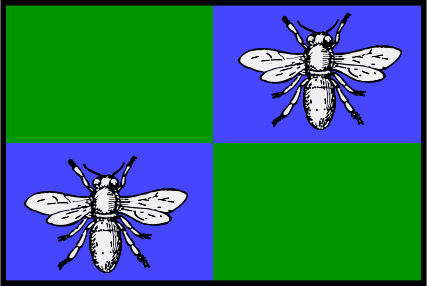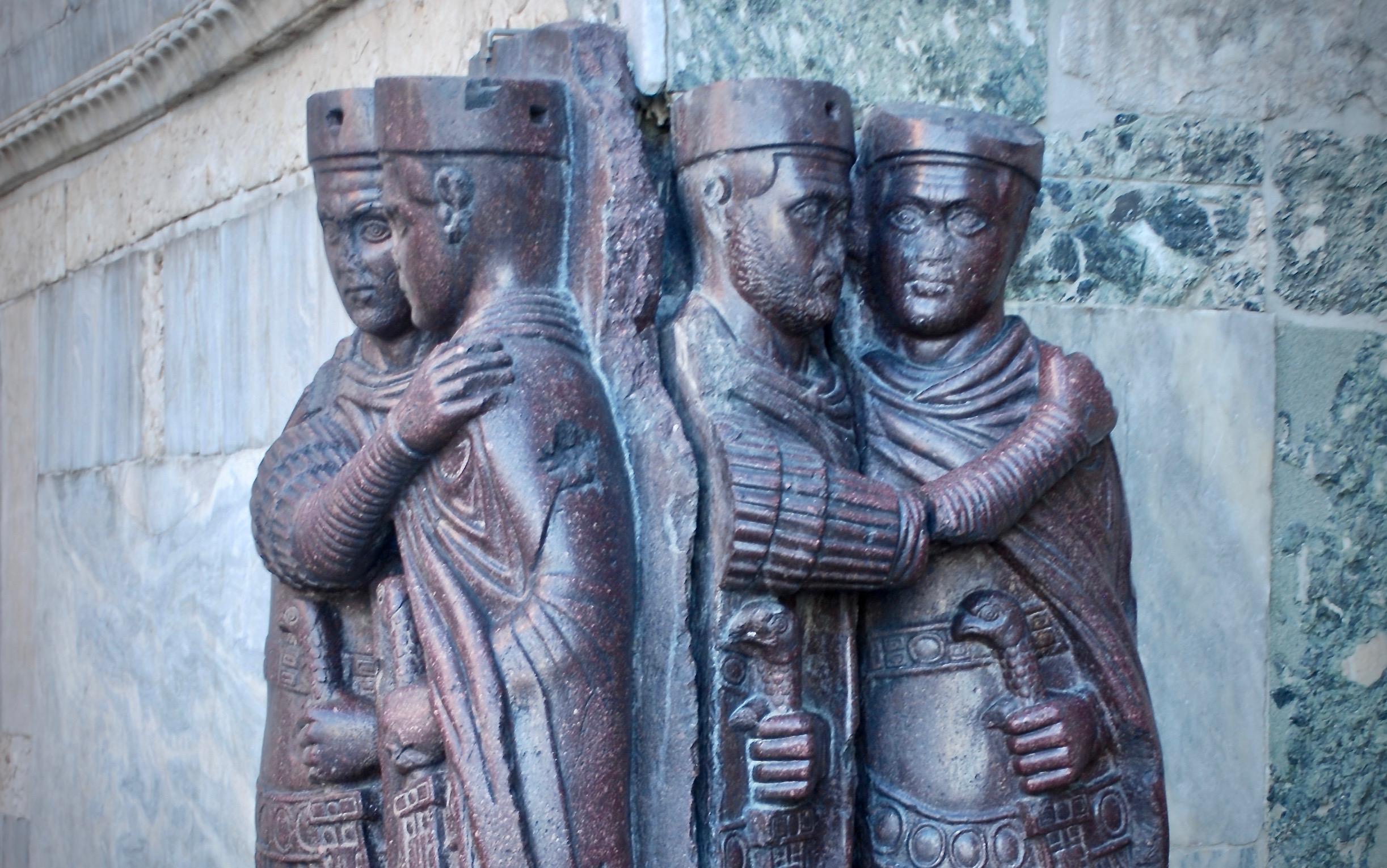Community Commune of Vellbruck
An interesting political experiment, but one that should perhaps have been left theoretical, rather than being applied practically…. Nevertheless, one has to give the inhabitants of the Commune credit for conducting their official and private lives in such a fashion for over 150 years. Still it leaves a lot to be desired, and their political system is certainly not to my taste.Extract from Maximilian Hoherberg von Zottehal’s History of the Known World. The Community Commune of Vellbruck is one of the most unique geopolitical bodies in the Mountain Principalities, if not the whole of the continent of Turoza. As the Kingdom of Reinhart collapsed, the Baron of Vellbruck attempted to increase his power-base, by invading Vellbruck’s neighbour, the Marquisate of Huttpach, naively believing that he had the love and devotion of his people behind him and that they would willingly give their lives to strengthen the Barony and the Baron’s own ambitions to take the throne in Heimatstadt. However, after less than two months of conflict, the people of Vellbruck, who had been embittered against the Baron, his family and their autocratic, often ruthless rule for decades took matters into their own hands, killed the Baron and all of his family who were not able to flee and established their own nation, founded on a belief in equality across all aspects of life. This led to the establishment of the Community Commune of Vellbruck, where power is given to people at random, wealth is redistributed and all are accountable to the collective body of the people.
Structure
After the deposition and death of the last Baron of Vellbruck in 402S.E., the rule of the area has been firmly in the hands of the people. However, rather than adopting a more traditional form of democracy, such as in the Republic of Bonnow or the Republic of Castar, where the people elect officers who have put themselves forward to serve the people and the nation, in Vellbruck all citizens over the age of 25 are automatically put forward for office, and the decision is made through selection by lot. Every three years, all eligible citizens gather in the Commune’s capital, Völkerburg, where they are registered and their name is inscribed onto a sherds of broken pottery, and are then deposited into an enormous brass cauldron, known as the ‘Electoral Cauldron’ where they sherds are constantly mixed and muddled with one another by electoral officers, whose sole job is to ‘stir the lots’ with large wooden paddles. Citizens of the Commune have three days in which to turn up and register, after which the lots are drawn. If a citizen fails to turn up in this time, they will be fined a sum of 200GP and will be imprisoned for the entire three year period they may potentially have held an office for.
10 lots are drawn from the ‘Electoral Cauldron’, with the first nine lots representing the Elected Representatives of the Commune (frequently abbreviated to ERC), as they are known, and the tenth lot representing the Head of the Elected Representatives of the Commune (frequently abbreviated to HERC). From the point of election the HERC and the ERCs act as the Commune’s ruling council and make decisions on behalf of the nation with regards to all manner of things that need governmental oversight. During this time they and their families are provided with a modest accommodation and lifestyle at the expense of the state in the capital Völkerburg.
When the HERC and the ERCs step down from office at the end of their 3 year period in office all 10 of them must undergo a rigorous, and often ruthless People’s Tribunal, where all of their actions as political officers are audited and scrutinised, with any actions deemed to be unfitting of an office holder, or where they were felt to not have acted with enough integrity or honesty result in the frequent application of heavy fines, periods of imprisonment and occasionally banishment or even death.
At the same time that the HERC and the ERCS are elected by lot a number of other officials are also selected by lot from the collective pool, all of whom hold office for a three year period, unless specified:
10 Community Judges- comprising of five High Judges that deal with the most serious of crimes and five Low Judges who deal with more petty offences and charges. All judges take up office a year after they are selected, allowing for the smooth conduct of the People’s Tribunals of the outgoing HERC and ERCs;
10 Commune Captains- who have responsibility for the command, mustering and training of the Commune’s militia;
People’s Marshall- who is the commander in chief of the Commune’s forces and to whom the Commune Captains report to;
Jurors- A grand total of 7,200 jurors are chosen for the next 3 year period of office holding. 200 individual Jurors are chosen to serve in each of the 36 months of the office holding period, during which time they will be put up in Völkerburg and will exclusively sit on jury panels during that time.
Assets
Despite the fact that the Commune is based geographically in the Steinwurm Valley, it is able to maintain a strong agricultural economy, with most of the land being suitable for both arable and pastoral farming activities. There is a particular pastoral focus on the production of wool, whilst the arable focus tends to be on the production of grains and vegetables. In addition, apiculture, beekeeping, is particularly promoted and supported in the Commune, which has enabled Vellbruck to become one of the leading producers of honey in the Mountain Principalities. The large amounts of honey that are produced not only lends itself to the production of by-products, such as beeswax, but has also led to the establishment of a large mead producing industry in the Commune. Mead, honey and other associated products the major exports that leave Vellbruck, and are a key source of income for the Community Commune as a whole, and its citizens, who receive some money from exports as part of the redistribution of wealth. So strong is apiculture in Vellbruck that bees even appear on the nation’s flag.
Demography and Population
The Community Commune of Vellbruck claims to be an egalitarian society, where all its citizens sit on the same economic, political and social level, and in many respects this is true. Regardless of the job or trade that a citizen carries out they are all paid the same basic income, which theoretically puts them in a stronger position economically than most of the peasantry in many of the Mountain Principalities' other constituent nations. In addition, all citizens have to pay to the state any income that they make that would put them above the basic level of income, theoretically putting everyone on the same economic playing field. However, there is some playing of the system that occurs, with many people, especially those that run their own businesses, fiddling the system by claiming more expenses than they have actually spent, and keeping the excess money for themselves. Despite the severe penalties for such practices, it is quite common, and has led to the establishment of a thriving black market in the Commune.
In terms of the population, the majority of Vellbruck’s population is made up of Halflings and Gnomes, though there are significant minority populations of Humans and Elves as well. Few Dwarves are found in the Commune, as the political system of the country frowns upon having ties to foreign organisations, such as Dwarvish Clans.
Military
The Commune does not maintain a dedicated military force, but instead has a system based around a militia. Each adult male between the ages of 25-50 is expected to take part in military exercises totalling in time to four days every month. Often these days will be held all in one go at the beginning or end of the month, to enable to carrying out of more complex drills. The militia is organised by the People’s Marshall, who acts as the commander in chief, and who is supported by 10 Commune Captains, who act as middle management and do most of the organisational work. Commune Captains then appoint individuals into more junior command positions below them, to allow for a coherent and more wieldy military command structure to exist. Citizens in the militia are not expected to provide their own weapons, and the Commune takes responsibility for providing arms and armour to the militia.

Type
Geopolitical, Republic
Demonym
Vellbruckian
Government System
Sortition
Economic System
Mixed economy
Official State Religion
Parent Organization
Controlled Territories
Neighboring Nations




Comments